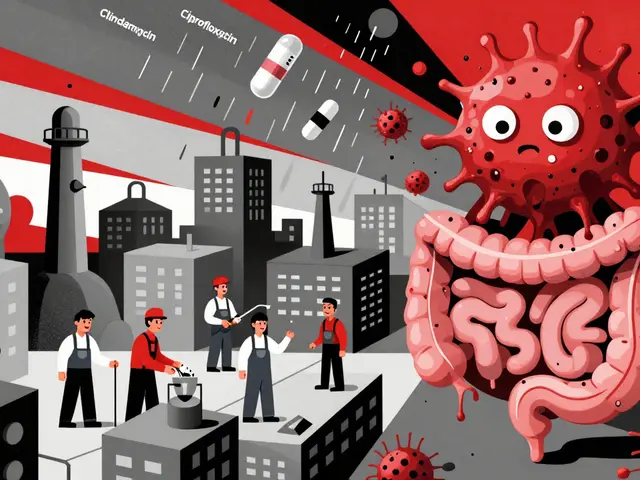Antioxidants: What They Do and How to Use Them Safely
Antioxidants stop or slow damage caused by free radicals — unstable molecules your body makes when it burns energy or faces stress. That damage, called oxidative stress, links to aging and chronic conditions like heart disease. Good news: you can reduce oxidative stress mainly through food, and sometimes with smart supplements.
How antioxidants help — quick and practical
Think of antioxidants as repair helpers. Vitamin C helps regenerate other antioxidants and supports immunity. Vitamin E protects cell membranes. Selenium and zinc are tiny but needed for antioxidant enzymes. Plant compounds — flavonoids, resveratrol, anthocyanins — lower inflammation and protect blood vessels. Most people get big benefits by eating a variety of antioxidant-rich foods rather than relying on pills.
Want a simple plate? Add berries, dark leafy greens, nuts, beans, tomatoes, and a cup of green tea. Dark chocolate (70%+) and colorful fruits like cherries and plums are great treats that pack antioxidants. These foods deliver a mix of nutrients your body uses together — that synergy is hard to copy in a capsule.
Supplements and safety — what to watch for
Supplements can help when diet falls short, but they aren’t risk-free. High-dose beta-carotene increased lung cancer risk in some studies of smokers, so smokers should avoid beta-carotene supplements. Large doses of vitamin E can raise bleeding risk, especially with blood thinners. Some research shows very high doses of vitamin C or E might blunt the training benefits of exercise.
If you consider supplements, aim for moderate doses close to recommended daily amounts unless a doctor prescribes otherwise. Common, reasonable targets: vitamin C from food plus 75–100 mg if supplementing, vitamin E around 15 mg from diet, and selenium near 55 mcg. For specific needs, clinicians sometimes use NAC or glutathione — but those should be taken under medical guidance.
Pick quality brands that use third-party testing (look for USP, NSF, or ConsumerLab seals). Check labels for dose, form (natural vs. synthetic), and unnecessary additives. If you take prescription meds, especially chemotherapy, blood thinners, or thyroid drugs, talk to your doctor before adding antioxidants — they can change how some medicines work.
Bottom line: focus first on a colorful, whole-food diet. Use supplements selectively and with a safety check. Small, consistent food changes give strong antioxidant benefits without the risks tied to high-dose pills.
If you want, I can list top antioxidant-rich foods, suggest a 7-day meal plan, or review common supplements and brand quality. Which would help you most?

Scotch Thistle Supplement: Natural Health Boost
Discover how the Scotch thistle dietary supplement works, its key benefits, safety tips, and how to choose a high‑quality product for optimal health.
read more
Maqui: Get the Scoop on the Supplement That's Got Everyone Talking
Maqui berries are shaking up the supplement scene, grabbing attention for their super high antioxidant levels and bold claims. This article digs into what maqui actually is, why it’s trending now, how it might affect your health, and what research genuinely says. You’ll also get some everyday tips if you’re thinking of trying it, plus a peek at what’s on the horizon for this purple powerhouse. Get honest answers and practical insights before you jump on the maqui train.
read more




